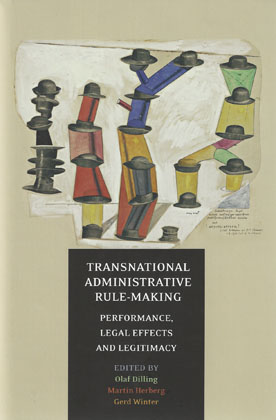We are now closed for the Christmas and New Year period, returning on Monday 5th January 2026. Orders placed during this time will be processed upon our return on 5th January.

In an age of globalisation, many regulatory problems lie beyond the reach of the nation state. Solutions have to be found which extend beyond territorial borders. Normally we would expect international law to be the appropriate forum for addressing these issues, but this assumes formal consensus amongst states, which is difficult to obtain.
Therefore a number of informal structures of pragmatic public governance have emerged as an alternative to formal law-making processes, operating within the transnational space between national and international law.
These structures display a great variety-ranging from loose transboundary networks linking national administrative agencies and transnational expert committees, to networks involving administrative staff of international organisations. They work out their own agendas, and in some cases have emancipated themselves from formal national or international parent institutions. These network-like structures have become important building blocks of global governance, addressing today's regulatory issues in a more flexible way. At the same time their informality raises crucial questions of legitimacy.
The present volume shows how transnational administrative governance leads to a paradox: while it performs well in many areas, providing solutions that are not achievable by state and international law, its informality profoundly lacks legitimacy in a strict sense. This book explores, from a socio-legal perspective, a broad range of legitimation mechanisms of different types and quality and shows that there can be a fit between certain forms of legitimation and specific governance constellations. In doing so, the book adds an empirical layer to our understanding of transnational administrative governance.